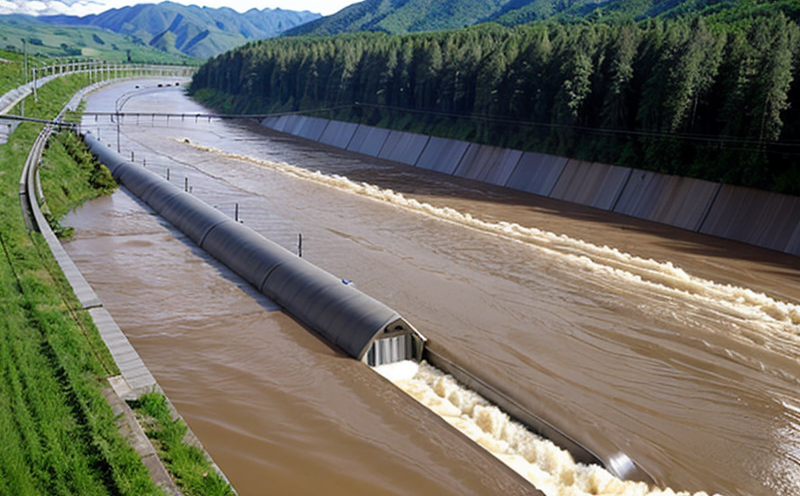
-
Renewable Energy Testing and Standards-
Certification for Hydropower Systems-
Certification for Hydropower Flood Control Systems
We provide comprehensive solutions designed to help our clients mitigate risks, enhance performance, and excel in key areas such as quality, health & safety, environmental sustainability, and social responsibility.
Discover
For many years, our organization has been operating successfully, boasting modern laboratories that meet international standards. These laboratories are equipped with the latest technology devices and equipment, and we have built a strong team of experienced and trained personnel to operate them.
DiscoverWelcome to Eurolab, your partner in pioneering solutions that encompass every facet of life. We are committed to delivering comprehensive Assurance, Testing, Inspection, and Certification services, empowering our global clientele with the ultimate confidence in their products and processes.
Discover
-
Renewable Energy Testing and Standards-
Certification for Hydropower Systems-
Certification for Hydropower Flood Control SystemsCertification for Hydropower Flood Control Systems
Hydropower flood control systems are critical infrastructure components that help manage water levels and mitigate the risk of flooding in various parts of the world. These systems involve complex engineering designs, construction, and operation processes to ensure their safety, efficiency, and reliability. In recent years, there has been a growing emphasis on certifying hydropower flood control systems to guarantee that they meet international standards, industry best practices, and regulatory requirements.
Importance of Certification for Hydropower Flood Control Systems
Certification for hydropower flood control systems is essential for several reasons:
Safety
Reliability
Regulatory compliance
Cost savings
2. How do I determine which certification standards apply to my hydropower flood control system?
Consult relevant industry organizations, such as the International Hydropower Association or American Society of Civil Engineers.
Review national, regional, or international regulations and guidelines applicable to your project location.
3. What are the key factors considered in certifying a hydropower flood control system?
Design and engineering
Material specifications
Installation and testing
Ongoing maintenance and operation
4. Can certification for hydropower flood control systems help reduce costs over time?
Yes, certified systems can minimize the need for repairs, replacements, or upgrades.
5. What are some common challenges associated with certifying large-scale hydropower flood control systems?
Initial costs
Regulatory complexity
Scalability
6. How does certification impact public trust in hydropower flood control systems?
Certification demonstrates the safety, efficiency, and reliability of these systems.
7. Are there any industry-specific standards or guidelines for certifying hydropower flood control systems?
Yes, organizations such as the International Hydropower Association, American Society of Civil Engineers, and World Commission on Dams provide guidelines and best practices.
Note: This article provides a general overview of certification for hydropower flood control systems. It is recommended that you consult relevant industry experts, regulatory bodies, or technical manuals for specific guidance on your projects requirements and certifications.

Product and Retail Standards
Product and Retail Standards: Ensuring Quality and Safety for Consumers In todays competitive marke...

Trade and Government Regulations
Trade and government regulations play a vital role in shaping the global economy. These regulations ...

Lighting and Optical Device Testing
Lighting and Optical Device Testing: Ensuring Performance and Safety Lighting and optical devices a...

Cosmetic Product Testing
The Complex World of Cosmetic Product Testing The cosmetics industry is a multi-billion-dollar ma...

Aviation and Aerospace Testing
Aviation and Aerospace Testing: Ensuring Safety and Efficiency The aviation and aerospace industr...

Railway Industry Compliance
Railway Industry Compliance: Ensuring Safety and Efficiency The railway industry is a critical comp...

Chemical Safety and Certification
Chemical safety and certification are critical in ensuring the safe management of products and proce...

IT and Data Center Certification
IT and Data Center Certification: Understanding the Importance and Benefits The field of Informatio...

Agricultural Equipment Certification
Agricultural equipment certification is a process that ensures agricultural machinery meets specific...

MDR Testing and Compliance
MDR Testing and Compliance: A Comprehensive Guide The Medical Device Regulation (MDR) is a comprehe...

Fire Safety and Prevention Standards
Fire Safety and Prevention Standards: Protecting Lives and Property Fire safety and prevention stan...

NEBS and Telecommunication Standards
Network Equipment Building System (NEBS) and Telecommunication Standards The Network Equipment Bu...

Construction and Engineering Compliance
Construction and Engineering Compliance: Ensuring Safety, Quality, and Regulatory Adherence In the ...

Electromechanical Safety Certification
Electromechanical Safety Certification: Ensuring Compliance and Protecting Lives In todays intercon...

Battery Testing and Safety
Battery Testing and Safety: A Comprehensive Guide As technology continues to advance, battery-power...

Electrical and Electromagnetic Testing
Electrical and Electromagnetic Testing: A Comprehensive Guide Introduction Electrical and electrom...

Automotive Compliance and Certification
Automotive Compliance and Certification: Ensuring Safety and Efficiency The automotive industry is ...

Renewable Energy Testing and Standards
Renewable Energy Testing and Standards: Ensuring a Sustainable Future The world is rapidly transiti...

Consumer Product Safety
Consumer Product Safety: Protecting Consumers from Harmful Products As a consumer, you have the rig...

Military Equipment Standards
Military Equipment Standards: Ensuring Effectiveness and Safety The use of military equipment is a ...

Healthcare and Medical Devices
The Evolution of Healthcare and Medical Devices: Trends, Innovations, and Challenges The healthcare...

Hospitality and Tourism Certification
Hospitality and Tourism Certification: Unlocking Opportunities in the Industry The hospitality and ...

Energy and Sustainability Standards
In today’s rapidly evolving world, businesses face increasing pressure to meet global energy a...

Environmental Simulation Testing
Environmental Simulation Testing: A Comprehensive Guide In todays world, where technology is rapidl...

Transportation and Logistics Certification
Transportation and Logistics Certification: A Comprehensive Guide The transportation and logistics ...

Industrial Equipment Certification
Industrial equipment certification is a critical process that ensures industrial equipment meets spe...

Pressure Vessels and Installations Testing
Pressure Vessels and Installations Testing Pressure vessels are a critical component of various ind...

Food Safety and Testing
Food Safety and Testing: Ensuring the Quality of Our Food As consumers, we expect our food to be sa...

Pharmaceutical Compliance
Pharmaceutical compliance refers to the adherence of pharmaceutical companies and organizations to l...

Environmental Impact Assessment
Environmental Impact Assessment: A Comprehensive Guide Environmental Impact Assessment (EIA) is a c...